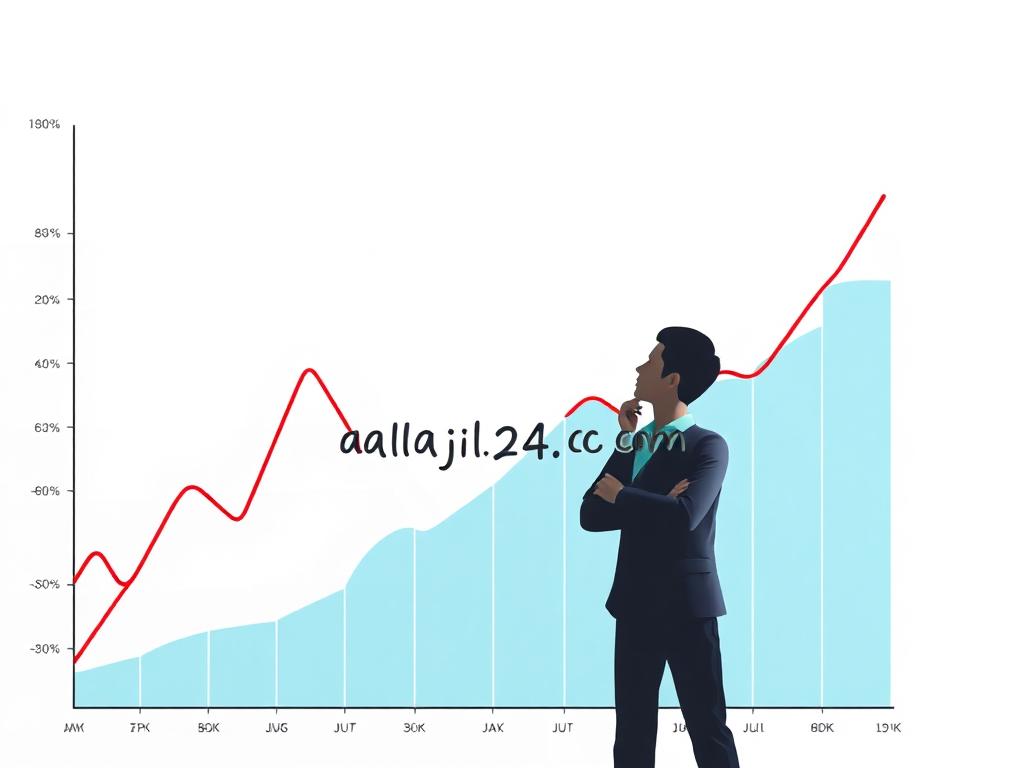Understanding Forex Currency Movements and Its Impact on Global Markets
The foreign exchange (Forex) market is the largest and most liquid financial market in the world. With over $6 trillion traded daily, Forex is a hub where currencies are bought and sold, with prices fluctuating based on various factors. This market is not just important for investors and traders; it also plays a significant role in the global economy. Understanding Forex news, the factors that influence currency movements, and how they impact both short-term and long-term market trends is essential for anyone involved in international trade or investment.
In this article, we will explore the key components of Forex news, the driving factors behind currency fluctuations, and the broader economic and geopolitical forces that affect this highly dynamic market.
What is Forex?
The Forex market, also known as the FX or currency market, is the global marketplace for exchanging national currencies. Unlike stock markets, Forex operates 24 hours a day, five days a week, allowing continuous trading across different time zones. The Forex market is decentralized, meaning there is no single exchange or physical location where currencies are traded. Instead, trading happens electronically through a network of banks, brokers, and financial institutions.
Forex trading involves buying one currency while simultaneously selling another. Currency pairs, such as EUR/USD (Euro/US Dollar) or GBP/USD (British Pound/US Dollar), are the products of this exchange. The value of these pairs fluctuates based on a range of economic and political factors.
Why is Forex News Important?
Forex news is crucial because it directly influences currency prices, which can lead to significant profit or loss for traders and investors. Changes in currency values are often driven by news related to global economic events, central bank decisions, political developments, and shifts in market sentiment. Forex news gives traders insight into these factors, allowing them to make informed decisions regarding their trades.
For example, if a country’s central bank announces an interest rate hike, it might lead to an appreciation of its currency as higher interest rates attract foreign investors seeking better returns on their investments. On the other hand, negative news such as political instability, natural disasters, or economic recession can cause currency depreciation.
By following Forex news, traders can predict price movements, identify profitable opportunities, and manage risks effectively. Therefore, keeping up-to-date with the latest developments in the Forex market is essential for both professional traders and casual investors.
Key Drivers of Forex Market Movements
Several factors drive the Forex market, including economic indicators, central bank policies, geopolitical events, and market sentiment. Understanding how these factors work individually and collectively can give traders a deeper insight into market trends.
1. Economic Data and Its Influence on Forex
Economic indicators are one of the most important factors that influence Forex markets. These indicators provide insights into the economic health of a country and its prospects for growth. The most significant economic data include:
- Gross Domestic Product (GDP): GDP measures the total value of all goods and services produced by a country. A rising GDP often signals economic strength, which tends to strengthen the country’s currency. Conversely, declining GDP may lead to a depreciation of the currency.
- Unemployment Rates: High unemployment can indicate a weak economy, which could lead to currency depreciation. On the other hand, a declining unemployment rate often signals economic recovery and may strengthen the currency.
- Inflation Data: Inflation is another critical factor that affects Forex. High inflation can erode the value of a currency, while low inflation may lead to currency appreciation. Central banks often use inflation data to determine monetary policies.
- Retail Sales and Consumer Confidence: These indicators reflect consumer spending habits, which account for a large portion of economic activity. Strong retail sales and high consumer confidence usually strengthen a currency, as they indicate a healthy economy.
Economic news releases, such as monthly jobs reports, GDP growth figures, and inflation statistics, play a key role in shaping Forex markets. These reports often cause market volatility, especially when they deviate from expectations.
2. Central Bank Decisions and Their Impact
Central banks play a significant role in currency valuation through their monetary policies. Central banks control interest rates, which have a direct impact on currency values. When a central bank raises interest rates, it generally leads to currency appreciation as higher rates attract foreign capital. Conversely, when interest rates are cut, the currency tends to weaken due to lower returns on investments.
Key central banks that affect global Forex markets include:
- The Federal Reserve (Fed): The U.S. Federal Reserve’s decisions on interest rates and monetary policy significantly influence the value of the U.S. dollar (USD). When the Fed raises rates, the dollar strengthens as it offers higher returns for investors.
- The European Central Bank (ECB): The ECB governs the Eurozone’s monetary policy, influencing the value of the euro (EUR). ECB interest rate decisions and other policy measures can lead to significant fluctuations in the Euro.
- The Bank of Japan (BoJ): The Bank of Japan’s policies affect the Japanese yen (JPY). As a major global currency, changes in the BoJ’s policy can create volatility in the Forex market.
Central bank meetings and announcements often trigger sharp movements in currency pairs. For traders, understanding central bank policies is crucial for predicting market movements.
3. Geopolitical Events and Their Influence
Geopolitical events can have an immediate and powerful impact on the Forex market. Political instability, elections, military conflicts, and trade wars are just a few examples of geopolitical risks that affect currency values.
- Political Instability: Countries experiencing political turmoil or uncertainty often see their currencies weaken due to the risks associated with instability. Investors prefer stable environments, and uncertainty can cause capital flight.
- Trade Wars: Trade tensions between major economies, such as the U.S. and China, can cause fluctuations in the value of their respective currencies. Tariffs, trade agreements, and protectionist policies often lead to shifts in market sentiment, affecting currency exchange rates.
- Elections and Policy Shifts: Elections can also cause volatility, particularly when unexpected results or significant shifts in policy occur. For example, the uncertainty surrounding the outcome of the Brexit referendum caused significant movements in the value of the British pound.
Geopolitical risks often create periods of heightened volatility, and traders need to be aware of global events to navigate such uncertainties effectively.
4. Market Sentiment and Its Role
Market sentiment refers to the overall mood or attitude of investors toward a specific currency or economic environment. It is influenced by various factors, including economic data, geopolitical events, and broader market trends.
When market sentiment is positive, investors are more likely to buy currencies, leading to appreciation. Conversely, when sentiment is negative, investors may sell off assets, causing currencies to depreciate. Forex traders use sentiment indicators, such as positioning reports and sentiment surveys, to gauge market mood and predict potential price movements.
5. The Role of Speculators and Hedge Funds
Forex markets are also influenced by large institutional investors, including hedge funds, banks, and multinational corporations. These entities often engage in speculative trading, buying and selling currencies based on anticipated economic trends and events. Speculative activity can contribute to price fluctuations and market volatility, as large institutions make large-volume trades that affect market conditions.
Speculators play a key role in driving short-term Forex movements, and their activity can often exaggerate price swings.
How to Stay Updated on Forex News
For Forex traders, staying informed about market developments is crucial. There are various resources available for keeping up-to-date with the latest news and events that impact Forex markets:
- Forex News Websites: Websites like Bloomberg, Reuters, and CNBC provide real-time updates on global economic data releases, central bank decisions, and geopolitical events. These sites also offer expert analysis and forecasts that can aid traders in making informed decisions.
- Economic Calendars: An economic calendar is an essential tool for Forex traders. It lists upcoming economic events, such as central bank meetings, employment reports, and GDP releases. By referring to these calendars, traders can plan ahead and prepare for potential market-moving events.
- Forex Forums and Social Media: Platforms like Reddit and Twitter allow traders to share insights and opinions on current events affecting the Forex market. Participating in these forums can provide valuable information and help traders stay informed.
- Trading Platforms: Many Forex trading platforms, such as MetaTrader, offer real-time news feeds, economic calendars, and market analysis. These tools allow traders to access the latest news directly within their trading environment.
Conclusion
The Forex market is constantly influenced by a wide range of factors, including economic data, central bank policies, geopolitical events, and market sentiment. By staying informed about Forex news and understanding the driving forces behind currency movements, traders can make better decisions, manage risks effectively, and take advantage of profitable opportunities.
For those new to Forex trading, following the news and analyzing market conditions can seem overwhelming at first. However, with the right tools, strategies, and consistent learning, anyone can navigate the Forex market successfully. Whether you’re a seasoned trader or just starting, understanding the impact of Forex news is essential for achieving long-term success in this fast-paced and ever-changing market.




